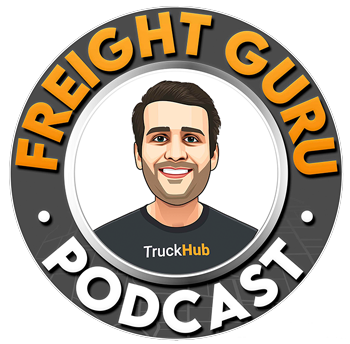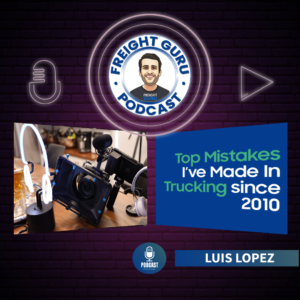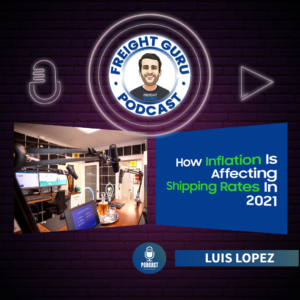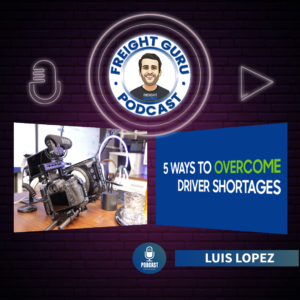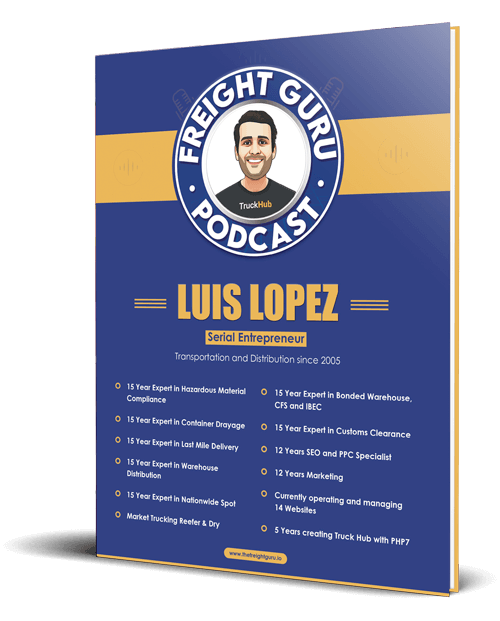In this week’s episode our Freight Guru, Luis Lopez interviews guest Salvador (Sal) Camaraza, National Sales Manager at ECU Worldwide about co-loading and the current state of the shipping market.
Listen to the Full Episode Here
It’s a known fact in our logistics world that ocean shipping rates are inflated more than 50 percent. According to Sal, this phenomenon is due to many factors creating a “perfect storm.”
As demand surges with little supply, shipping rates keep going up with containers priced at around $18,000 in comparison to “pre-covid” conditions priced at $5,000 per container. According to an article, rates are predicted to keep inflating until Q1 of 2022.
Supply chains and manufacturers in Asia ship shortage, along with port congestions, a raw material shortage, and a worldwide container shortage are but a few of the factors affecting the overwhelming ocean rate inflations.
In the current market climate, it’s proving to be difficult to move freight due to the massive lead times as well as the reasons listed above. Procurement officers are having to book their purchase orders (POs) six to eight weeks in advance knowing that they may not receive the merchandise in a month or so.
What is Co-Loading?
Co-loading means transferring cargo by a freight forwarder to another carrier either to another freight forwarder or consolidator. Co-loading is a common procedure in import-export trade, especially for less container load (LCL) transactions.
LCL is a more profitable solution in contrast with full container load (FCL) for freight forwarders. It has “a lot of moving parts” like first-mile and last-mile transport, as well as custom processes in some cases.
Check out Episode 18 – Create A 7512 For In Bond Cargo to find out more about your customs processes
Under normal circumstances, co-loading is difficult to scale because you have to make sure to always have a full box. You must guarantee weekly shipping to stay afloat and meet customer satisfaction.
What Sales Strategy can Help to Scale in LCL?
- Get used to rejection – Have the mental strength to get 100 nos to get to 10 yeses.
- Activity – be disciplined and set realistic goals and KPIs.
- Have a process – have a schedule that works best for you and stays consistent with it.
What is ECU Worldwide?
ECU Worldwide was founded in 1987 in Belgium, ECU Worldwide (erstwhile ECU Line) is a global leader in NVOCC services. Backed by a rich legacy, passion, and agility, we have brought in world-class innovations in LCL and FCL services setting several benchmarks in the industry.
Download full Pdf here to know more
Terms:
MBO – Management Buy-Out is a transaction where the management team of a company acquires ownership control of the company by means of equity investment and loans.
Lead Time – it is the time between the release of an order and the production and shipment that fulfill that order.
CFS – Container Freight Station
FCL – Full Container Load
LCL – Less than Container Load
CFS – Container Freight Station
NVOCC – Non-Vessel-Operating Common Carrier
PO – Purchase Order
DC – Direct Continuation
Recommended Logistics and Trucking companies:
FTL Services – http://teamdgd.com – https://goftl.io – https://gologistics.io
LTL Services – https://goltl.io
Hazmat Services – https://gohazmat.io
TMS – https://mytruckhub.com
Logistics Services – https://go-freight.io
Fulfillment – https://gosunship.io
Warehousing – https://gowarehouse.io
